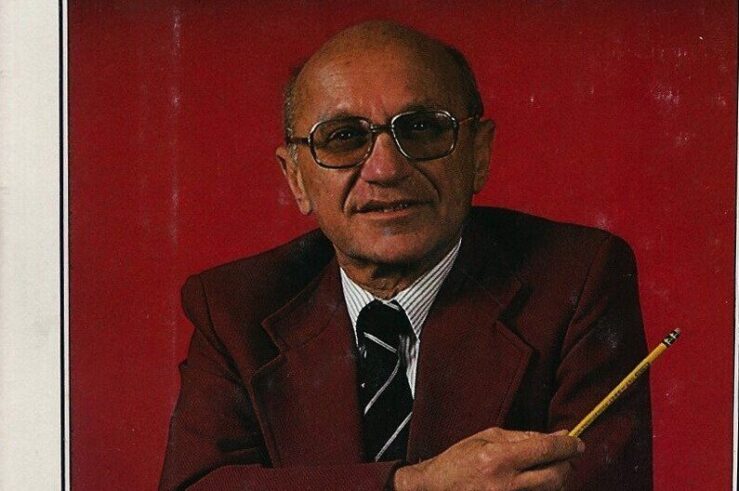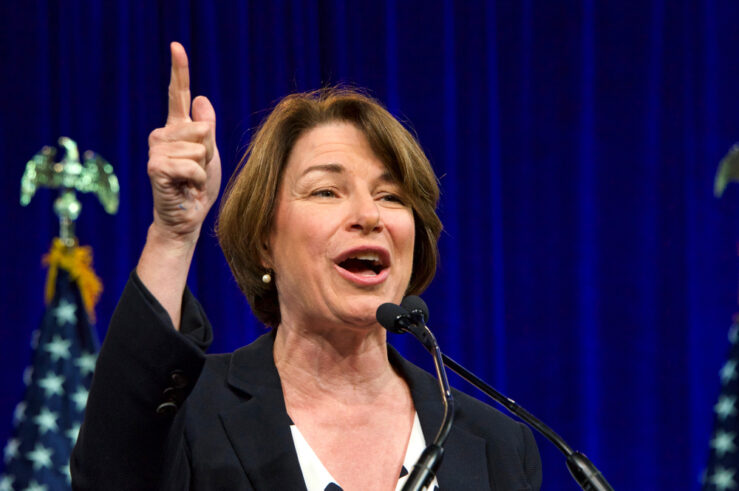Showing results for: “digital markets act”
Three Big Pitfalls in the Way of Lina Khan’s Agenda
In a recent op-ed for the Wall Street Journal, Svetlana Gans and Eugene Scalia look at three potential traps the Federal Trade Commission (FTC) could trigger if it pursues the aggressive rulemaking agenda many have long been expecting. From their opening: FTC Chairman Lina Khan has Rooseveltian ambitions for the agency. … Within weeks the FTC is ... Three Big Pitfalls in the Way of Lina Khan’s Agenda
FTC UMC Roundup – A Quantum of Wonder Edition
Early August is an unpredictable time in the policy world. With Congress about to go on recess, one never knows if there will be a mad rush to get something done, or what that something may be. And it is, for many, a month of vacations and light schedules. Short staffing may delay work or ... FTC UMC Roundup – A Quantum of Wonder Edition
Antitrust’s Uncertain Future Roundup: The Minority Report
[TOTM: The following is part of a digital symposium by TOTM guests and authors on Antitrust’s Uncertain Future: Visions of Competition in the New Regulatory Landscape. Information on the authors and the entire series of posts is available here.] Philip K Dick’s novella “The Minority Report” describes a futuristic world without crime. This state of the ... Antitrust’s Uncertain Future Roundup: The Minority Report
The Road to Antitrust’s Least Glorious Hour
Things are heating up in the antitrust world. There is considerable pressure to pass the American Innovation and Choice Online Act (AICOA) before the congressional recess in August—a short legislative window before members of Congress shift their focus almost entirely to campaigning for the mid-term elections. While it would not be impossible to advance the ... The Road to Antitrust’s Least Glorious Hour
Waking up to Platform Regulation
Brrring! “Gee, this iPhone alarm is the worst—I should really change that sometime. Let’s see what’s in my calendar for today…” In accordance with new regulatory requirements, Apple is providing you with a choice of app stores. Please select an option from the menu below. Going forward, iOS applications will download via the selected store ... Waking up to Platform Regulation
FTC UMC Roundup – Can’t a Man Eat in Peace Edition
This week’s news can be divided into PM and AM editions – pre-Manchin and after-Manchin. Anything that seemed possible in Congress before Senators Manchin (D-WV) and Schumer (D-NY) announced their agreement on a reconciliation bill that addresses climate, energy, and tax issues now seems far less likely. Congress hath no fury like a McConnell scorned. ... FTC UMC Roundup – Can’t a Man Eat in Peace Edition
The Four Ways of Spending Data
In Free to Choose, Milton Friedman famously noted that there are four ways to spend money[1]: Spending your own money on yourself. For example, buying groceries or lunch. There is a strong incentive to economize and to get full value. Spending your own money on someone else. For example, buying a gift for another. There ... The Four Ways of Spending Data
A Day in the Fair New World of Perfectly Open Platforms
Early Morning I wake up grudgingly to the loud ring of my phone’s preset alarm sound (I swear I gave third-party alarms a fair shot). I slide my feet into the bedroom slippers and mechanically chaperone my body to the coffee machine in the living room. “Great,” I think to myself, “Out of capsules, again.” ... A Day in the Fair New World of Perfectly Open Platforms
The Woman in the High Office
May 2007, Palo Alto The California sun shone warmly on Eric Schmidt’s face as he stepped out of his car and made his way to have dinner at Madera, a chic Palo Alto restaurant. Dining out was a welcome distraction from the endless succession of strategy meetings with the nitpickers of the law department, which ... The Woman in the High Office
Commerce Committee Fails to Correct Major Deficiencies in House Privacy Bill
Having earlier passed through subcommittee, the American Data Privacy and Protection Act (ADPPA) has now been cleared for floor consideration by the U.S. House Energy and Commerce Committee. Before the markup, we noted that the ADPPA mimics some of the worst flaws found in the European Union’s General Data Protection Regulation (GDPR), while creating new ... Commerce Committee Fails to Correct Major Deficiencies in House Privacy Bill
Verses on Self-Preferencing
About earth’s creatures great and small,Devices clever as can be,I see foremost a ruthless power;You, their ingenuity. You see the beak upon the finch;I, the beaked skeleton.You see the wonders that they are;I, the things that might have been. You see th’included batteriesI, the poor excluded ones.You, the phone that simply works;I, restrain’d competition. ’Twould ... Verses on Self-Preferencing
Antitrust Populists Don’t Seem to Care About the Poor
Antitrust populists like Biden White House official Tim Wu and author Matt Stoller decry the political influence of large firms. But instead of advocating for policies that tackle this political influence directly, they seek reforms to antitrust enforcement that aim to limit the economic advantages of these firms, believing that will translate into political enfeeblement. ... Antitrust Populists Don’t Seem to Care About the Poor















